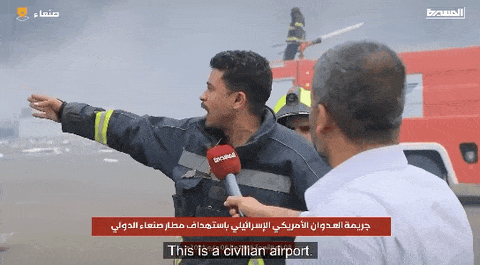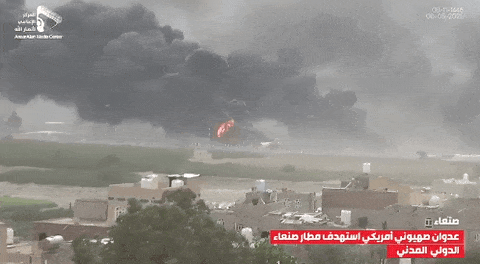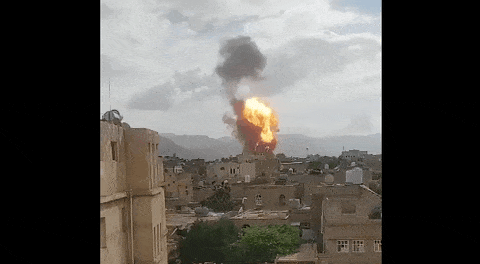
Hi Global Recap readers,
So, it turns out Pakistan’s minister wasn’t entirely off when he warned about an “imminent” Indian attack last week—it didn’t happen within the 24–36 hours he claimed.
But honestly, no one’s really hung up on the timing.
What has everyone talking is how fast this is escalating. With both India and Pakistan being nuclear-armed, every move feels loaded.
Yes, past incidents have usually stayed within the bounds of tit-for-tat responses, but some are saying that “this time feels different.”
Here’s what's going on: 👇
🇮🇳 INDIA & 🇵🇰 PAKISTAN
Are We Beginning
Another War?

Indian Governor of Mizoram General VK Singh posted this video on X.
Click for video
Early Wednesday, India launched missile strikes into Pakistani-controlled territory in retaliation for last month’s deadly terrorist attack in disputed Kashmir, which left 26 dead (mostly Hindi).
Pakistan hit back fast—its air defenses shot down five Indian jets, escalating tensions and nudging the two nuclear-armed rivals dangerously close to war.
Precision Missile Strike
India’s military action targeted nine sites in Pakistan‐administered Kashmir and eastern Punjab, an operation it defends as “focused, measured and non‐escalatory.
Indian authorities maintain that no Pakistani military facilities were hit, pointing instead to terrorist infrastructure.
Reports initially indicated at least eight fatalities across multiple sites.
But just moments ago, Pakistan claimed the missile strike killed 13 people inside a mosque in Bahawalpur alone.
The Indian army declared on social media, “Justice is served,” following what they confirmed as precision strikes.
Tactical Operation
The offensive, code-named “Sindoor,” was executed with a mix of drone intelligence and precision weapon systems.
The name “Sindoor” evokes deep cultural symbolism among married Hindu women. Sindoor is a red or orange powder traditionally worn by married women along the parting of their hair.

An Indian official revealed that Prime Minister Narendra Modi personally monitored the operation throughout the night, ensuring every target was hit.
Retaliation
Additionally, Pakistan’s air defenses intercepted five Indian jets amid the escalating exchange.
A Pakistani military spokesman confirmed the jet interceptions, framing the attack as a “cowardly” assault on “innocent civilians” under the cover of darkness.
Pakistani Prime Minister Shehbaz Sharif stated, “Pakistan has every right to give a robust response to this act of war,” hinting at immediate retaliatory measures.
Just minutes ago, India’s army reported that what it called “arbitrary firing” by Pakistani forces—believed to be retaliation for the missile strikes—killed three civilians in Kashmir.
📎 Note: This is a rapidly evolving story, with reports constantly shifting and sources often contradicting each other.
Here’s a live update page of the situation: Click here.

🇮🇱 ISRAEL & 🇾🇪 YEMEN
Yemen Airport Under Israeli Fire
Israeli jets bombed the international airport in Sanaa, Yemen, after the Houthis hit Israel’s Ben Gurion Airport on Sunday.
Israeli Strike
Israeli fighter jets bombarded Sanaa’s main international airport, a link for more than 20 million Yemenis in Houthi-controlled areas.
The Israel Defense Forces (IDF) issued evacuation orders via social media before the attack.

The IDF’s evacuation orders (translated)
The Israeli Defense Forces (IDF) claimed the airport was used by the Houthi organization for the transfer of weapons and operatives.
Unlike the Houthi missile that hit near Tel Aviv’s Ben Gurion Airport—injuring at least six people and briefly grounding flights—Israel’s strike on Sanaa’a Airport completely disabled it. However, thanks to advance warning, no casualties were reported at the airport.
More Photos & Videos

A Yemeni firefighter speaks out against the strike.
Click for video

After the strike, people uploaded screenshots of Google Maps showing that the airport is now “permanently closed.”

But when I checked Google Maps, it showed the place as “temporarily closed.” I couldn’t verify if that had changed later or if it just looked different because of my location.
🤔 Personal Thoughts:
This is undeniably a retaliatory move. But that hasn’t stopped a wave of criticism online—especially from Yemenis on the ground—who are calling it foul.
Let’s not forget: the Houthi missile did strike Israeli territory—something that happened because Israel’s missile defense system failed to intercept it. After years of consistent interceptions, it’s possible the Houthis expected this missile would be blocked like the others.
I’m not sure—that’s simply my attempt to understand their mindset.

🇷🇺 RUSSIA
Kadyrov Urges To Be Let Go

Chechen leader Ramzan Kadyrov (left) and Russian President Vladimir Putin (right)
Chechen leader Ramzan Kadyrov recently said he had asked to be relieved of his post, following years of speculation about his health and subtle moves to position his 17-year-old son as a successor.
Soon after, however, he reversed course, reaffirming his loyalty to his long-time patron, Vladimir Putin.
✒️ Context:
Ramzan Kadyrov, now 48, landed his role in 2007 when Putin appointed him, just three years after Kadyrov’s father, Akhmad, was assassinated.
Abrupt Retraction

Ramzan Kadyrov’s 17-year-old son Adam Kadyrov. Adam was recently appointed to serve as “curator” of the regional branch of Russia’s Interior Ministry.
Kadyrov declared his desire to step aside while hinting at a future led by his teenage successor (according to a report from Novaya Gazeta Europe).
However, soon after this announcement, he walked back his resignation comment.
On Telegram, he stated, “I do not decide whether I will remain in the position of the Head of the Chechen Republic or not.”
He added, “Yes, I can ask or suggest. But no matter how much I say, no matter how much I ask, such a decision is made by only one person—our Supreme Commander-in-Chief, President of Russia Vladimir Vladimirovich Putin.”
Future Uncertainty
This unexpected political move leaves many questions about the shifting dynamics in Russian leadership.
Some interpret Kadyrov’s request to step down as a crack in the illusion of Putin’s unshakable control.
Others see it as further proof that real power remains firmly in the hands of President Putin.
Many now wonder if this was a calculated prelude to deeper shifts within Chechnya—and perhaps even the Kremlin itself. But Kadyrov’s decision to walk it back suggests it may have been less a strategic move and more a miscalculation. 😬

🇪🇺 EUROPE
EU Bans Russian Energy

Ukrainian President Volodymyr Zelenskyy (left) and EU Chief Ursula von der Leyen (right) in Brussels, Belgium on March 6, 2025.
After years of steadily rerouting energy away from Moscow, Europe is drawing a hard line on Russian gas. With full separation set for 2027, the bloc is aiming to prevent funds from fueling aggression in Ukraine.
The Roadmap
The European Commission unveiled its plan on May 6 to cut off Russian energy for good.
New contracts for Russian gas—whether LNG or pipeline—are forbidden, and spot market purchases must end by 2025, paving the way for a total ban by 2027.
Member states need to submit individual phase-out plans, invoking force majeure due to Russia’s invasion.
Strategic Resolve
The policy is a direct response to calls to stop financing Russian warfare.
For years, critics have pointed to the EU’s apparent hypocrisy: supporting Ukraine politically, while continuing to fund Russian energy companies.
Energy Commissioner Dan Jorgensen: “No more shall Euros go into (Russia’s) war chest. Your gas will be banned. Your shadow fleet will be stopped.”
EU Commission President Ursula von der Leyen: “Energy that comes to our continent should not pay for a war of aggression against Ukraine.”
Logistical Hurdles
However, the move doesn’t come without challenges.
The key hurdle is cutting ties without triggering energy shortages or price shocks across Europe.
The plan depends on ramping up LNG capacity—projected to grow by 200 billion cubic meters by 2028—but some countries, like Hungary, remain heavily dependent on Russian nuclear fuel.
Several member states may push back on the timeline due to their entrenched energy dependencies.
Broader Energy Shift
This new phase follows significant strides made over the past years, when:
Russian gas imports fell from 45% in 2021 to 19% now
Oil imports dropped from 27% in early 2022 to just 3%.
Even with a modest rebound in gas imports in 2024, the trend shows Europe’s long-term shift away from Russian energy.



